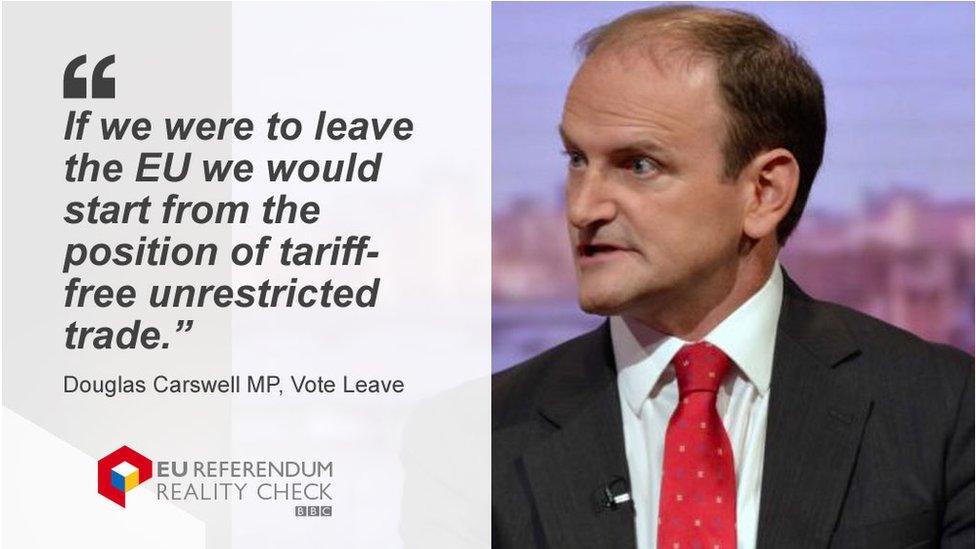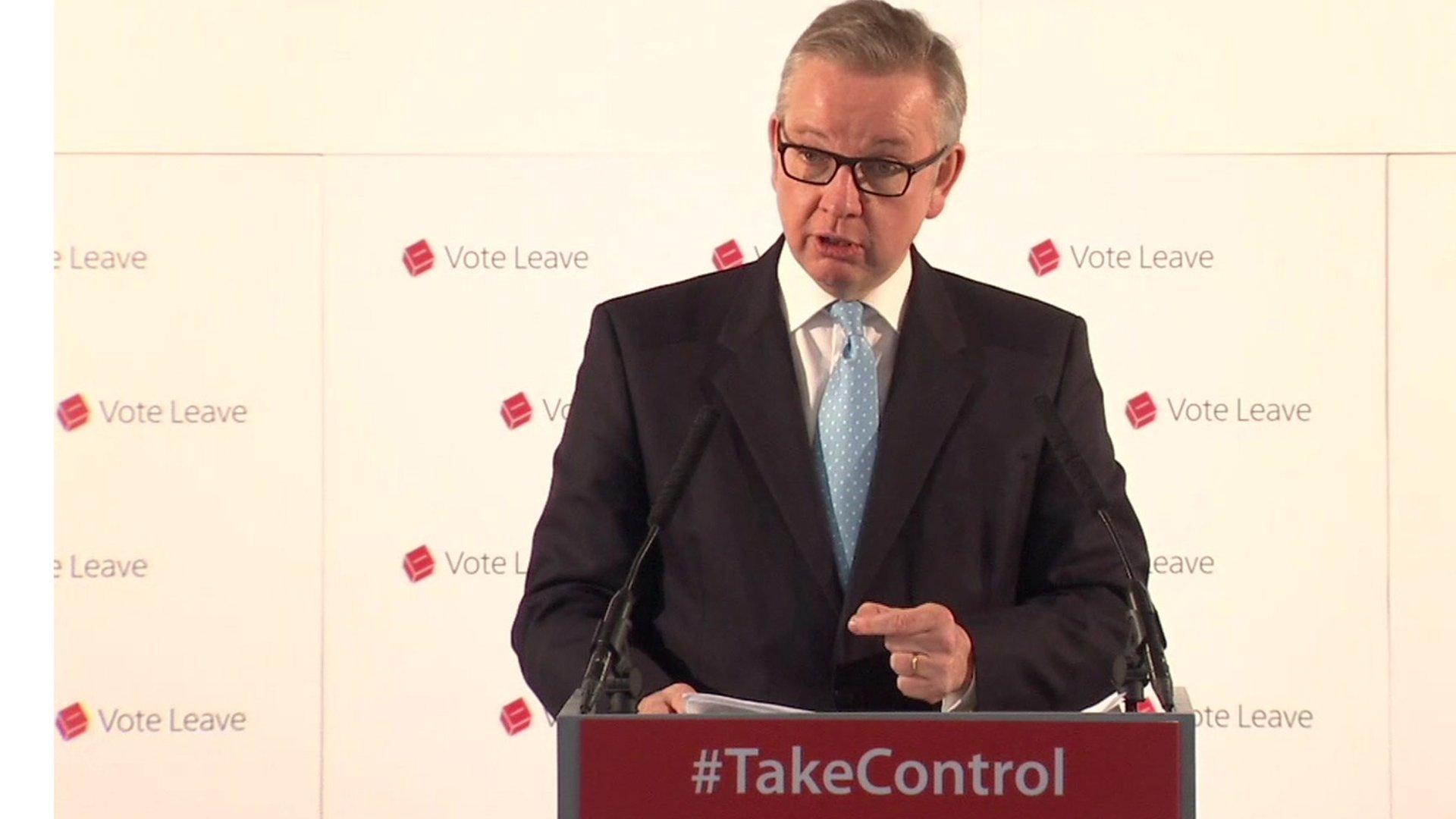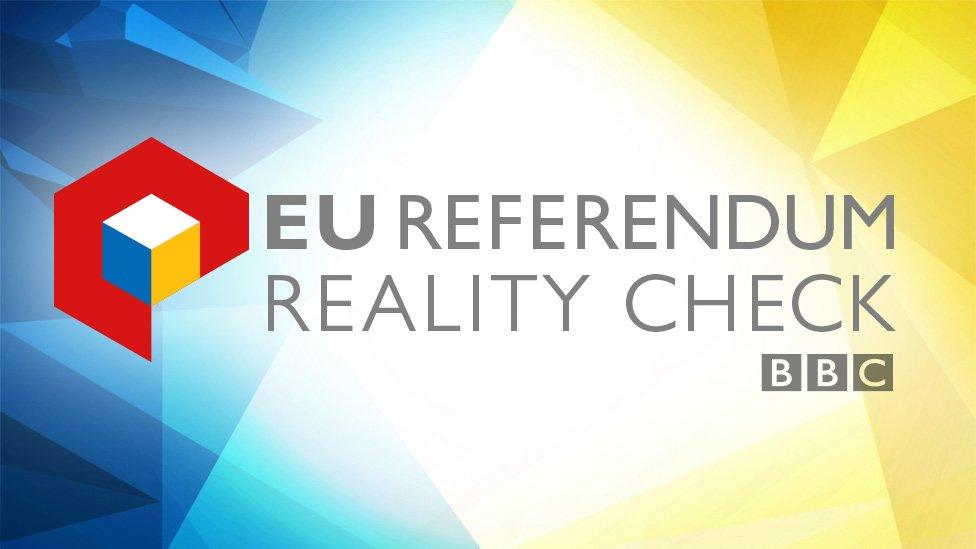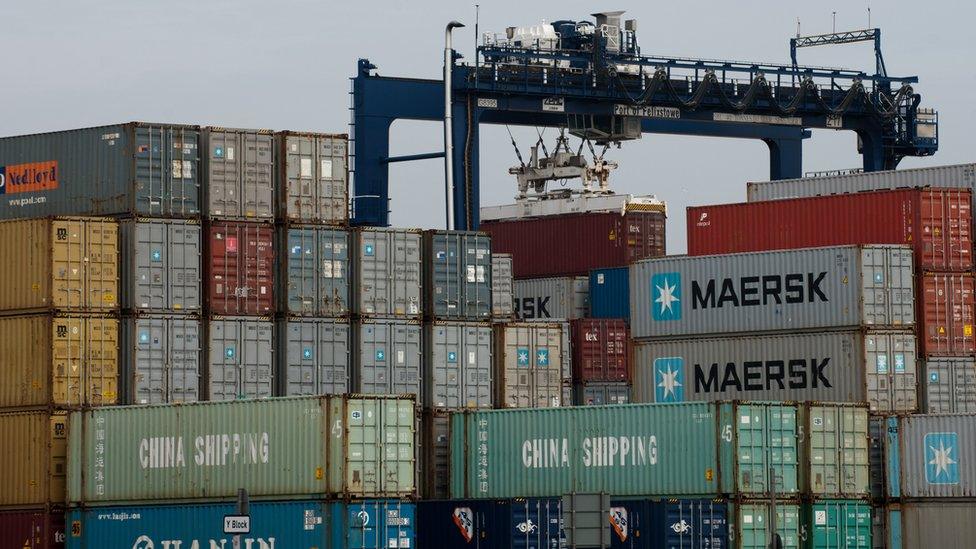Reality Check: Would the UK face tariffs outside the EU?
- Published

The claim: Douglas Carswell, the UKIP MP and Leave campaigner said on BBC Radio 4's Today programme "If we were to leave the EU we would start from the position of tariff-free unrestricted trade and we could certainly build on that and improve on that".
Reality Check verdict: How a new deal would look remains one of the biggest questions over a vote to leave the EU. The UK's current tariff-free, unrestricted trade deal with the EU would remain in place for at least the first two years of negotiations. No non-EU countries have negotiated tariff-free unrestricted trade with the EU without contributing to the EU budget and allowing unlimited EU migration.
Douglas Carswell, the UKIP MP and Leave campaigner, has said the UK could have tariff-free, unrestricted trade if it left the EU.
He said every country in Europe, with the exception of Belarus, currently enjoys just that.
In practical terms the UK's current tariff-free, unrestricted trade deal would remain in place for two years while a new deal was negotiated.
How a new deal would look remains one of the biggest questions over a vote to leave the EU.
After that, without a deal the default position would be to revert to World Trade Organisation rules. These would impose automatic WTO tariffs and the European Union would apply its own external customs tariff on goods from the UK.
Mr Carswell argues the size of the UK market and the amount the EU sells to the UK means it would have to do a trade deal with the UK.
Others argue letting the UK leave on good terms could be politically difficult for other European countries.
So what could the UK negotiate? And at what cost?
'Unrestricted, tariff-free trade'
Mr Carswell cited two examples of countries outside the EU that have "unrestricted, tariff-free trade". Iceland was one, Turkey was the other.
Iceland, like Norway, and Lichtenstein - has negotiated a deal for tariff-free, quota-free trade with the single market and is part of the European Economic Area (EEA). But Iceland also signed up to the free movement of goods, services, people and capital. It has to make a financial contribution to the EU and implement EU single market rules and regulations, with little say on what they are, along with the rest of the (EEA).
Turkey wants to join the EU. It has been in negotiations to do so since 2005.
At the moment it is within the European Union's customs union. That means it faces no tariffs or quotas on industrial goods it sends within the European Union but it has to apply the European Union's common external tariff, a set rate of tariffs on goods from outside the EU, on those goods too.
The customs union does not apply to services or agricultural goods.
Membership of the EU's customs union is usually seen as a way for a country's economy to catch up with the rest of the EU in preparation for more comprehensive membership.
Being in the customs union gives Turkey no access to trade in services, which make up almost 80% of the UK economy.
It also gives it no say on the tariffs it has to impose on goods from outside its borders.
So Turkey has tariff-free trade in goods with the EU but that's all. It does not have free movement of people, so border checks remain in place.


READ MORE: The facts behind claims in the EU debate

- Published19 April 2016

- Published19 April 2016

- Published8 June 2016
